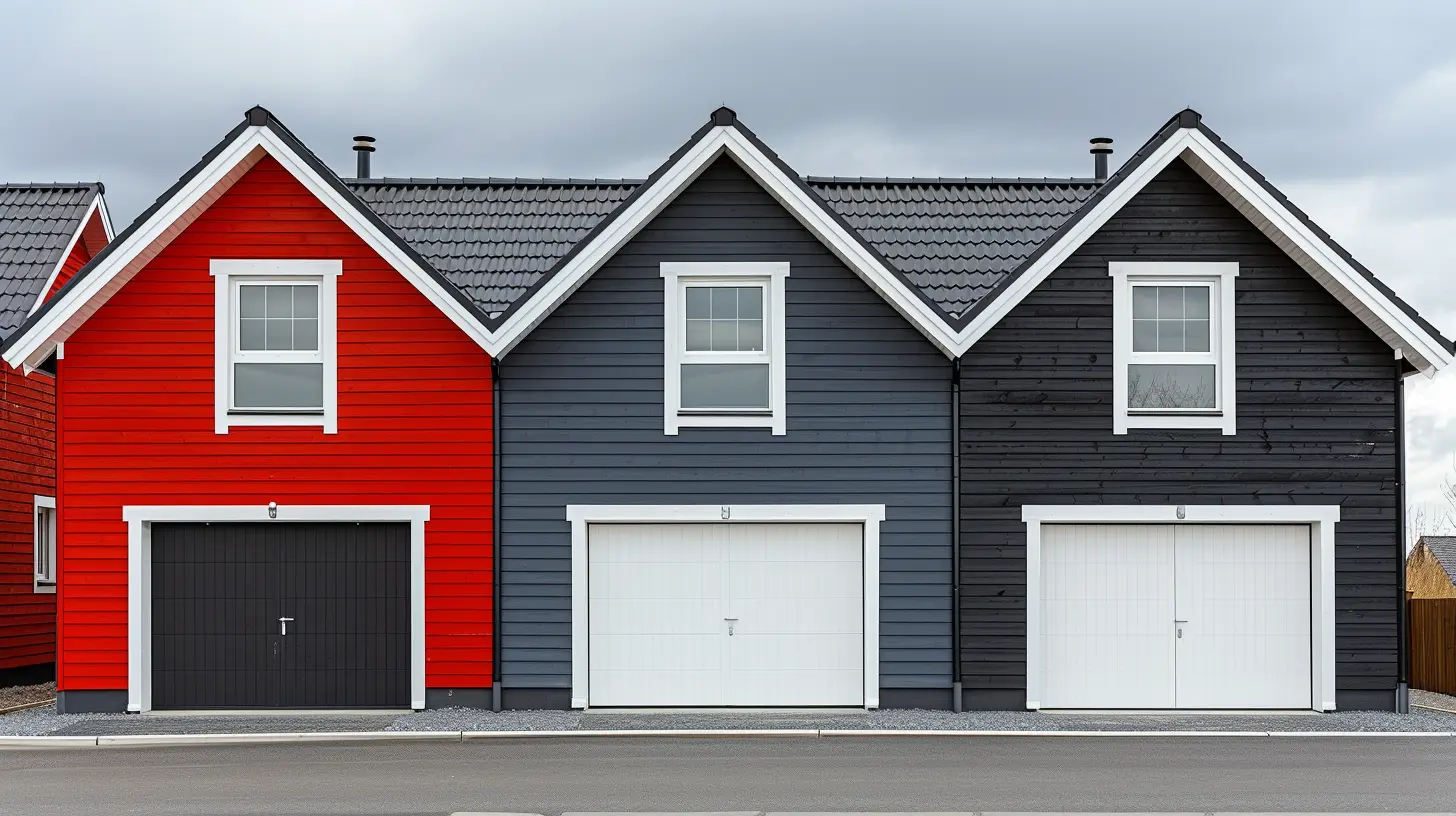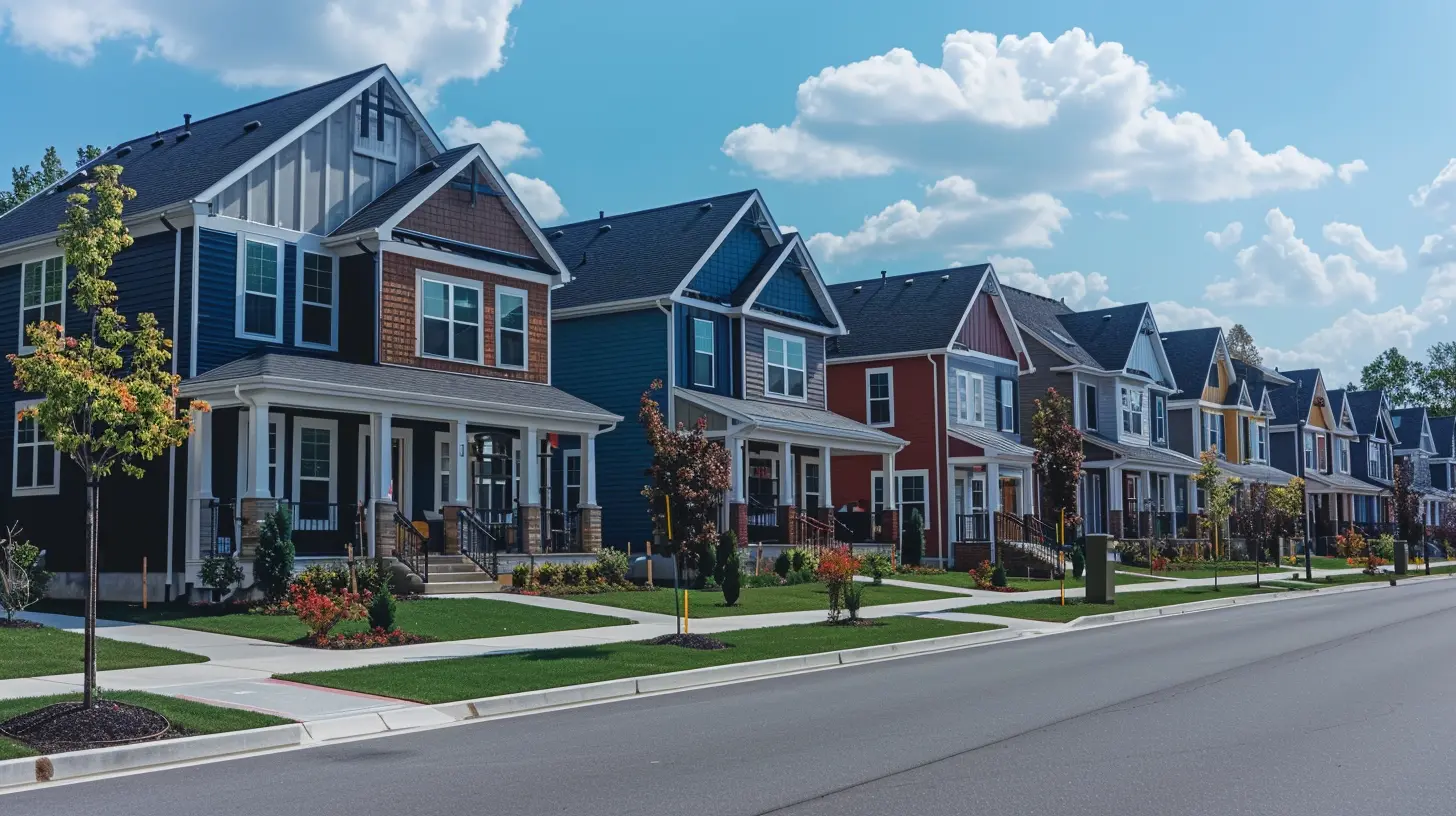The Role of Interest Rates in Real Estate Investment
17 September 2025
Let’s talk about something that may sound a little dull on the surface—interest rates. Yes, I know, they don’t exactly scream adventure and excitement. But if you’re investing in real estate (or even just thinking about it), interest rates play a starring role behind the scenes. From how much you pay on your mortgage to the return on your rental property, rates can make or break your investment game.
So grab a cup of coffee, get comfy, and let’s unpack the very important (and surprisingly interesting) role of interest rates in real estate investment. Spoiler alert: by the end of this, you’ll see why investors obsess over even a 0.25% change.
What Are Interest Rates, Really?
Okay, let's keep this simple. Interest rates are essentially the cost of borrowing money. When you get a mortgage to buy a house, the bank charges interest. That’s their way of saying, “Hey, thanks for borrowing our money. Now pay us a little extra for the trouble.”But here's where it gets real: even a tiny increase or decrease in interest rates can drastically change what you pay over the life of your loan. We're talking thousands—potentially even tens of thousands—of dollars.
How Interest Rates Affect Your Mortgage
Let’s break this one down with a quick example. Imagine two investors:- Investor A scores a 30-year fixed mortgage at 3.5%.
- Investor B gets in at 5.5%.
Both loans are for $300,000.
Over the life of that loan:
- Investor A pays about $485,000 total.
- Investor B? Roughly $613,000.
That’s a whopping $128,000 difference—and all because of a 2% increase in interest rates. 😳
So yes, interest rates might seem small, but over time, they are giant influencers.
The Domino Effect: When Rates Change, So Does Everything
Interest rates don’t live in a bubble. When the Federal Reserve (aka “the Fed”) changes the benchmark rate, it creates a domino effect. Mortgage rates often follow suit. But that’s not all—interest rates impact:- Property prices
- Demand for housing
- Rental yields
- Investment strategy
Let me explain.
Lower Interest Rates = Buyer Frenzy
When interest rates dip, borrowing money becomes cheaper. That means more people can afford to take out a mortgage. And what happens when more people want homes?You guessed it—home prices shoot up.
It's like a Black Friday sale for real estate. Everyone wants in, and competition gets fierce. If you're already holding property, this is music to your ears. But if you’re trying to buy? You’ve got competition—and possibly overpaying on your hands.
Higher Interest Rates = Market Cool Down
On the flip side, when rates go up, things slow down. Fewer people qualify for mortgages. Monthly payments become scarier. Buyers retreat, and demand drops.That can actually be a great opportunity if you're a savvy investor with cash or favorable financing. Why? Less competition, better negotiating power, and potentially lower property prices. It's a buyer's market.
Think of it like winter shopping—fewer people are out there, but the deals? Oh, they’re there if you’re paying attention.
Real Estate Investors and Rate Sensitivity
Now, real estate investors aren’t like your typical home buyers. We wear a few more hats—landlord, project manager, amateur plumber (you know it’s true!).And we care a lot about returns.
Interest rates directly affect these returns. Whether you’re flipping properties, renting them out, or holding long-term, the rate you pay on your loan impacts your monthly cash flow and your ROI (Return on Investment).
Let’s Talk Rental Properties
If you're financing a rental property at 7% interest instead of 5%, your mortgage payment goes up. Unless rents also go up (which sometimes they don’t), you're making less each month.Here’s a quick thought experiment:
- At 5% interest, your monthly mortgage is $1,200.
- At 7% interest, it's $1,450.
- Your rent is $1,800 in both cases.
- So in the first scenario, you're pocketing $600.
- In the second? Only $350.
That’s almost cutting your cash flow in half. Ouch.
Flipping Properties? Rates Still Matter
If you’re in the flipping game, interest rates are still part of the equation. Most flippers use short-term financing like hard money loans, which are often interest-heavy.Higher rates mean those carrying costs go up while the property's sitting there, waiting for granite countertops and fresh paint. If the market is soft and buyers are few due to high mortgage rates, it could take longer to sell. That = $$$ out of your pocket.
Interest Rates and Property Appreciation
Here’s something to chew on: interest rates can indirectly affect how quickly a property appreciates.During times of low interest rates, people rush to buy homes. That demand can cause property values to rise quickly. If you buy early in the cycle, you might enjoy significant appreciation in a short time.
But if you buy at the peak when rates start climbing, you could see slower growth—or even a drop in value.
So yeah, timing is everything!
Fixed vs. Variable: Choosing the Right Loan
If you’re investing in real estate, you’ll likely face the classic choice: fixed-rate or variable-rate mortgage?- Fixed-rate loans stay the same for the life of the loan.
- Variable-rate (or adjustable) loans can go up or down over time.
Fixed-rates are great if you want predictability—especially when rates are low. Variable-rates can offer lower initial payments, but they’re riskier in a rising interest environment.
Think of it like choosing between a steady date and a wild fling. The steady date probably won’t surprise you. The fling? Who knows what tomorrow brings!
Interest Rates and Cap Rates
If you're really diving deep into real estate investment lingo, you’ve probably heard of cap rate—short for capitalization rate.It’s a key metric investors use to evaluate a property's ROI. The higher the cap rate, the better the return.
But here’s the catch: cap rates tend to move with interest rates.
When rates go up, cap rates generally rise too. That makes sense—investors expect better returns if borrowing costs are higher.
But this also means property values can go down, because cap rate is inversely related to value. So, higher interest rates can push returns up but values down. It's a balancing act.
Should You Wait for Rates to Drop?
Ahh, the golden question. If interest rates are high, should you just wait it out?Well, maybe. But also… maybe not.
Trying to time the market perfectly is like trying to catch a falling knife. It’s risky. Instead, ask yourself:
- Can I find a deal that cash flows now?
- Can I refinance later if rates drop?
- Am I investing for long-term wealth or quick gains?
If the numbers work even with higher interest rates—and you have exit strategies—you might not need to wait at all.
Tips for Investing Smart When Rates Are High
Alright, let’s wrap this up with some practical advice. If you're eyeing real estate in a high-rate environment, you're not out of luck. In fact, you might be ahead of the game.✅ Negotiate fiercely. Fewer buyers means motivated sellers. Use that.
✅ Look for creative financing. Seller financing, lease-options, partnerships—get crafty.
✅ Focus on cash flow. Don’t bank on appreciation. Buy properties that make money now.
✅ Improve what you buy. Add value through renovations or better property management.
✅ Lock in a fixed rate. Avoid surprises later when rates might climb again.
The Bottom Line
Interest rates may seem like background noise, but they’re truly the heartbeat of the real estate investment world. They influence everything—from your mortgage payment to your property's value to how much profit you take home.Understanding their role helps you play the real estate game smarter, whether the market is red-hot or ice-cold.
So next time you see the Fed talking about rate hikes or cuts, don’t change the channel. Lean in and grab that popcorn—because those changes might just be opening (or closing) the door to your next big investment opportunity.
all images in this post were generated using AI tools
Category:
Interest Rates ImpactAuthor:

Yasmin McGee
Discussion
rate this article
1 comments
Nadine McGovern
This article effectively highlights how interest rates significantly influence real estate investment decisions. By explaining the correlation between interest rates and property values, it provides valuable insights for investors. Understanding these dynamics is crucial for making informed choices in today's fluctuating market. Well done!
October 5, 2025 at 2:41 AM

Yasmin McGee
Thank you for your thoughtful feedback! I'm glad you found the article insightful and helpful for understanding the impact of interest rates on real estate investments.


